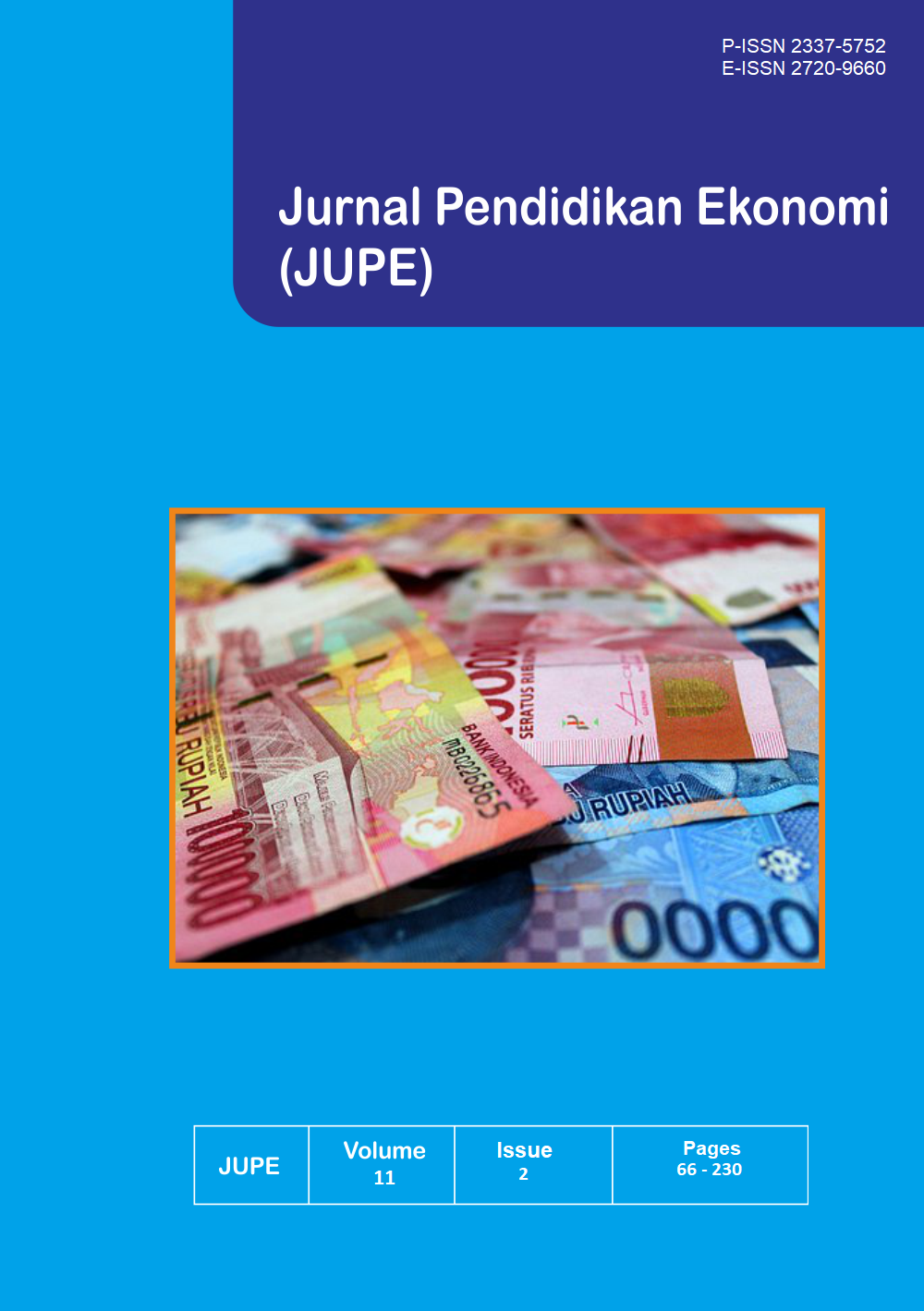Pengaruh Literasi Keuangan Terhadap Inklusi Keuangan Rumah Tangga Dengan Jaringan Sosial (Network) Sebagai Variabel Moderating
DOI:
https://doi.org/10.26740/jupe.v11n2.p77-85Keywords:
financial literacy, social network, financial inclusionAbstract
The research was conducted aiming to determine the effect of financial literacy on household financial inclusion with social networks as a moderating variable for the poor in Blora Regency. This research is a quantitative descriptive research where the research subjects are the poor people of Blora Regency, amounting to 391 respondents. Sampling was carried out using probability sampling with stratified random sampling technique. The process of collecting data is carried out by means of a questionnaire or questionnaire which is distributed to every house that has received a lottery number as a sample. The validity test technique uses the pearson product moment correlation formula. Data analysis used is hierarchical regression using Moderated Regression Analysis (MRA). The research results obtained include. First, financial literacy has a positive and significant effect on the financial inclusion of poor households in Blora Regency. Second, social networks have a positive and significant impact on the financial inclusion of poor households in Blora Regency. Third, social networks strengthen the relationship between financial literacy and the financial inclusion of poor households in Blora Regency.
Downloads
Downloads
Published
How to Cite
Issue
Section
License
Copyright
- Authors retain copyright and grant the journal right of first publication with the work simultaneously licensed under a Creative Commons Attribution License that allows others to share the work with an acknowledgment of the work's authorship and initial publication in this journal.
 Abstract views: 226
,
Abstract views: 226
, PDF Downloads: 429
PDF Downloads: 429











